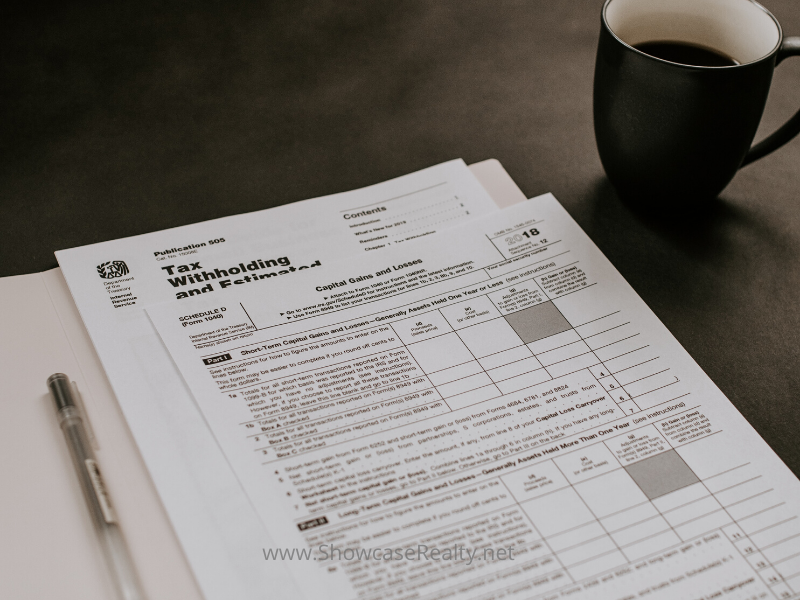Top 3 Reasons to Get Pre-Approved Before You Buy a Charlotte NC Home
May 02, 2020

Post by: Nancy Braun, Showcase Realty

Are you preparing to buy a home in Charlotte? Looking at homes for sale is fun and exciting.
Before you make the mistake of fixating over a certain type of home or on certain features you want in a home, you need to know what you can really afford. Knowing your budget gives you realistic expectations, allowing you to choose a home that’s right and within your financial range.
To get an idea of how much you can possibly qualify for, you can get a pre-qualification or pre-approval from a reliable lender.
What is a Mortgage Pre-Qualification?
A mortgage pre-qualification is an estimate of what you might be able to borrow based on the financial information you provided to the lender.
Getting a mortgage pre-qualification means giving the mortgage lender your general financial history including your debt, income, and assets. The lender will then review your information and give you an estimate on how much you can borrow.
Pre-qualification is generally free and can be done over the phone or online. This process is fast and simple. Three days is usually enough to get a pre-qualification letter since it does not include an in-depth analysis of your credit report nor your capability to buy a home.
Pre-qualification is regarded as a first step in taking a mortgage. Once you receive your pre-qualification letter, you can proceed to discuss with your lender your mortgage goals. This is the time to learn the various mortgage options available and to decide which one is best suited for your requirements.
Receiving a pre-qualification means you are being informed of an amount that may be approved. It does not carry the same weight as a pre-approval, nonetheless doesn’t disregard the importance of a pre-qualification.
The following information will be needed for a pre-qualification:
- Income information
- Credit check
- Basic information on bank accounts
- Down payment amount and desired mortgage amount
What is a Mortgage Pre-Approval
A mortgage pre-approval is a statement of your creditworthiness and is released by a lender or bank after a loan officer has closely evaluated your finances and determined how much money you can borrow, as well as how much you can pay monthly.

To get a pre-approval, you need to complete a mortgage application, provide the lender with all the important documentation so they can do an intensive financial check and credit rating. Once your documents are reviewed, the lender can pre-approve you for a specified amount.
Some lenders charge for a pre-approval application, which can amount to several hundred dollars.
Your pre-approval is a conditional commitment in writing for an exact loan amount. You can look for homes below or above the price indicated. Ideally, look for homes in the midrange so you’ll have some funds remaining for closing costs, home repairs, and updates if you want to change something in the house, or some savings.
To get a pre-approval, here are some of the things you need to prepare:
Social Security Number – The lender should be able to verify your identity, request tax returns info, and pull up credit reports.
Proof of employment – You need to show that you are employed (for at least two years) because having a job means you have the ability to repay the loan. Proof of income – You have to show proof of your recent earnings (most likely your pay stubs for the last 2 months). Lenders are interested to know your average annual income, and if you have any other additional income.

Tax documents – You would also have to turn in your tax documents for the last two years which includes your W-2 statements and tax returns.
Bank statements showing you have money for the down payment and closing costs.
Credit information so the lender can measure your debt-to-income ratio.
List of monthly expenses that can help lenders check your debt-to-income ratio and your ability to pay the loan.
Is Mortgage Pre-qualification the Same as Pre-approval?
These two financial terms are not interchangeable.
The mortgage pre-qualification is based on what you tell the lenders and does not always require detailed documentation of your financial history.
Pre-approval, on the other hand, requires documentation of income, assets, and debts. The mortgage lender digs deep into your finances before they give you a pre-approval.
Which one should you get if you are planning to buy a home in Charlotte NC?
If you are just in the planning stage of buying a home and would like to know your budget and want to have an idea of how much you can borrow, a pre-qualification is a good idea.
If you’re a committed home buyer who would like to make an offer when you see the house that fits your requirement, get pre-approved for a mortgage.
What Are the Benefits of Getting a Pre-Approval
One of the main differences between mortgage pre-qualification and mortgage pre-approval is how the lender gives you the mortgage amount.
For pre-qualification, the lender gives you a mortgage estimate.
For pre-approval, the lender gives you the exact loan amount.
Here’s how pre-approval helps you as a home buyer:
1. You Learn Exactly What You Can Afford

There are no estimates in a pre-approval. The lender has looked into your credit history and you’ve given the required documentation to go through with the pre-approval process.
A mortgage pre-approval is not a commitment to the loan, but it paves the way to transition into applying for a specific property for the Charlotte NC home for sale within your price range.
If you are pre-approved for a $150,000 loan, that means you need to look for a home that’s less than that amount.
You need to also keep in mind that there are other costs involved in home buying other than the price of the house. You have to take into consideration your household expenses and other financial responsibilities and make sure you save some money for these sleeper fees.
2. You Can Narrow Your Home Search
Searching through online listings can be a tedious process, especially if there are many homes for sale in the area. How do you narrow down your home search?
When you’re pre-approved, you’ll know exactly what you can afford, and tailor your home search around the mortgage amount. Now you can easily search through the listings with confidence and renewed energy. It will also save you unnecessary heartache and disappointment you’ll surely feel if you start looking at homes without knowing how much you can afford.
3. The Home Seller Takes Your Offer Seriously
Home sellers like to see that you’re pre-approved because it tells them that you’re serious about buying their home. So when you’re competing with other home buyers to make the best offer on your dream home, being pre-approved will give you a competitive edge over buyers who are not. Then you can focus on moving in to your new home!
When should you get pre-approval?
The best time to get a mortgage pre-approval is when you’re confident that your credit reports and score are in good shape. Pre-approvals typically last for 60-90 days only because your credit report can change within that time period.
If you’re planning to buy a home, get pre-approved six months to a year before.
Commonly Asked Questions About Mortgage Pre-Approval
Here are a few other questions I get from home buyers about pre-approval:
1. Should I get pre-approved from multiple lenders?
Shopping with different lenders allow you to compare loan costs, explore program options, and experience lender’s customer service before committing to the expensive and complex mortgage approval process.
Financial experts recommend that you apply for a loan pre-approval from several lenders, but going to more than three lenders is a waste of time because loan offers beyond this will have only very slight differences.
2. Can I switch lenders after pre-approval?
Yes, you can switch lenders at the last minute, but doing this has two possible downsides: it could tie up the sale and cause it to fall through.
3. Can a pre-approved mortgage fall through?
Yes, your mortgage can also be denied after pre-approval for the following reasons:
- Change of employment – Some lenders require a specific time length with a consistent employer. If there are gaps in your employment history, you have to write an explanation that should be verified and approved by the mortgage underwriter.
- Negative item on credit – You don’t need a perfect credit score to buy a home, but you do need a good one. If your credit score is in the low 600’s, you need to be careful and make sure to pay all your bills on time.
- Incurring additional debts – There’s a good reason why pre-approvals only last up to 90 days. It’s because you may add up additional debts or credit lines in those three months which will make home payments more challenging. Lenders are constantly checking your credit score so don’t add any debt.
- Change in lender guidelines – In some cases, a lender or mortgage products may experience a change in requirements. If this happens, your pre-approval may fall through.
- Appraisal issues – There are properties that lenders find risky, which can lead to rejection.
When you want more information about the mortgage pre-approval process or about finding the right Charlotte property that fits your needs, contact me and we can get started.
Call me, Nancy Braun, at (704) 997-3794 today.
Subscribe to our YouTube Channel for more home buyer and seller tips...


